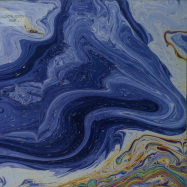

GTIN13:5054429138474
Code:cfg-r0
Release:18.10.2019
back in Stock:
07.10.2025

CRUSH
Side
BPM
Tracklist
Floating Points returns to Ninja Tune with his long awaited new album CRUSH. Black vinyl in regular sleeve artwork sleeve
The best musical mavericks never sit still for long. They mutate and morph into new shapes, refusing to be boxed in. Floating Points has so many guises that its not easy to pin him down. Theres the composer whose 2015 debut album Elaenia was met with rave reviews including being named Pitchforks Best New Music and Resident Advisors Album of the Year and took him from dancefloors to festival stages worldwide. The curator whose record labels have brought soulful new sounds into the club, and, on his esteemed imprint Melodies International, reinstated old ones. The classicist, the disco guy that makes machine music, the digger always searching for untapped gems to re-release. And then theres the DJ whose liberal approach to genre saw him once drop a 20-minute instrumental by spiritual saxophonist Pharoah Sanders in Berghain.
Fresh from the release earlier this year of his compilation of lambent, analogous ambient and atmospheric music for the esteemed Late Night Tales compilation series, Floating Points first album in four years, Crush, twists whatever you think you know about him on its head again. A tempestuous blast of electronic experimentalism whose title alludes to the pressure-cooker of the current environment we find ourselves in. As a result, Shepherd has made some of his heaviest, most propulsive tracks yet, nodding to the UK bass scene he emerged from in the late 2000s, such as the dystopian low-end bounce of previously shared striking lead single LesAlpx (Pitchforks Best New Track), but there are also some of his most expressive songs on Crush: his signature melancholia is there in the albums sublime mellower moments or in the Buchla synthesizer, whose eerie modulation haunts the album.
Whereas Elaenia was a five-year process, Crush was made during an intense five-week period, inspired by the invigorating improvisation of his shows supporting The xx in 2017. He had just finished touring with his own live ensemble, culminating in a Coachella appearance, when he suddenly became a one-man band, just him and his trusty Buchla opening up for half an hour every night. He thought what hed come out with would "be really melodic and slow- building" to suit the mood of the headliners, but what he ended up playing was "some of the most obtuse and aggressive music I've ever made, in front of 20,000 people every night," he says. "It was liberating."
His new album feels similarly instantaneous and vital. Its the sound of the many sides of Floating Points finally fusing together. It draws from the "explosive" moments during his sets, the moments that usually occur when he throws together unexpected genres, for the very simple reason that he gets excited about wanting to "hear this record, really loud, now!" and then puts the needle on. Its "just like what happens when youre at home playing music with your friends and it's going all over the place," he says.[info sheet from distr.]